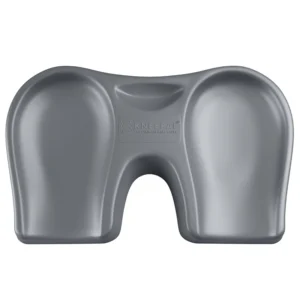When To Call a Doula?
Your best friend is 2000 miles away, your Mom’s across the ocean and the baby’s due in a few weeks – time to think of a doula!
Who needs a doula, you ask. The short answer: Give yourself the support you deserve. Anyone who wants extra emotional, physical, and informational support during pregnancy, childbirth, or postpartum might choose to have a doula. This can be especially helpful for:
-
First-time parents
-
People without a strong support system
-
Those wanting a more personalized birth experience
-
Anyone feeling anxious about labor or parenting
👶 The origin of the word “doula”
The origins of the word doula and the role itself come from both ancient practices and more recent developments:
-
The word doula comes from Ancient Greek: doulē (δούλη), meaning female servant or slave. In modern usage, it’s been reclaimed to mean a supportive companion, especially during childbirth or the postpartum period.
👶 Ancient Practices
-
Across many ancient cultures, women supported other women through pregnancy, labor, and birth.
-
In Africa, Asia, the Middle East, and Indigenous cultures worldwide, experienced women helped guide childbirth without formal medical training.
-
These were often mothers, aunts, grandmothers, or midwives in the community.
-
👶 Modern Doula Movement
-
The modern doula role was shaped in the 1960s-70s, when researchers like Dr. John Kennell and Dr. Marshall Klaus noticed that women supported by others during labor had better outcomes.
-
The doula profession grew out of a desire to offer non-medical, emotional, and physical support to birthing people, especially in hospital settings where birth had become more clinical.
👶. Doula vs Midwife – What’s the Difference?
| Doula | Midwife | |
|---|---|---|
| Role | Emotional & physical support | Medical professional for pregnancy & birth |
| Training | Trained in comfort, communication, support | Clinically trained to deliver babies, monitor health |
| Medical Care | ❌ No medical procedures | ✅ Can do exams, deliver babies, prescribe meds |
| Focus | Support & comfort | Health & safety of mother and baby |
| When They Help | Prenatal, during labor, postpartum | Throughout pregnancy, labor, and birth |
So basically: A doula is like a guide and cheerleader. A midwife is your trained medical provider.
👶 Tips for Choosing a Doula
-
Interview a few: Ask about their experience, birth philosophy, and how they support clients. This is someone who’s going to be with you at your most special moment, so it’s important to feel a rapport, and empathy with your final choice – and chances are you’ll be besties for life!
-
Look for certification: Not required, but many are trained through programs like DONA or BIRTH DOULA UK.
-
Chemistry matters: You should feel relaxed and supported around them.
-
Ask what’s included: Some offer prenatal visits, birth support, and postpartum help like feeding guidance or emotional check-ins.
👶 Tips for Choosing a Midwife
-
Decide on location: Do you want a home birth, birth center, or hospital?
-
Check online – there are many websites like doulamatch who will point you in the right direction.
-
Ask about approach: Some are more clinical, others very holistic.
-
See how they collaborate: If you’re also hiring a doula, check if the midwife is open to working as a team. This is important in the chances are they might know someone that they are used to working with, between all the sudden and done it’s your choice and you need to feel comfortable with the people that are going to be around you at that special time.
👶 Can They Work Together?
Yes! A doula and midwife actually complement each other beautifully:
-
The midwife focuses on your and baby’s health.
-
The doula makes sure you’re calm, confident, and comfortable. Does that seem impossible to imagine? Remember they do this regularly and all the time and that experience is going to give you enormous comfort, come the time.
Together, they create a powerful support team — especially in natural or low-intervention births.
But, doula or midwife, chances are your Kneepal will come in handy for years to come.











